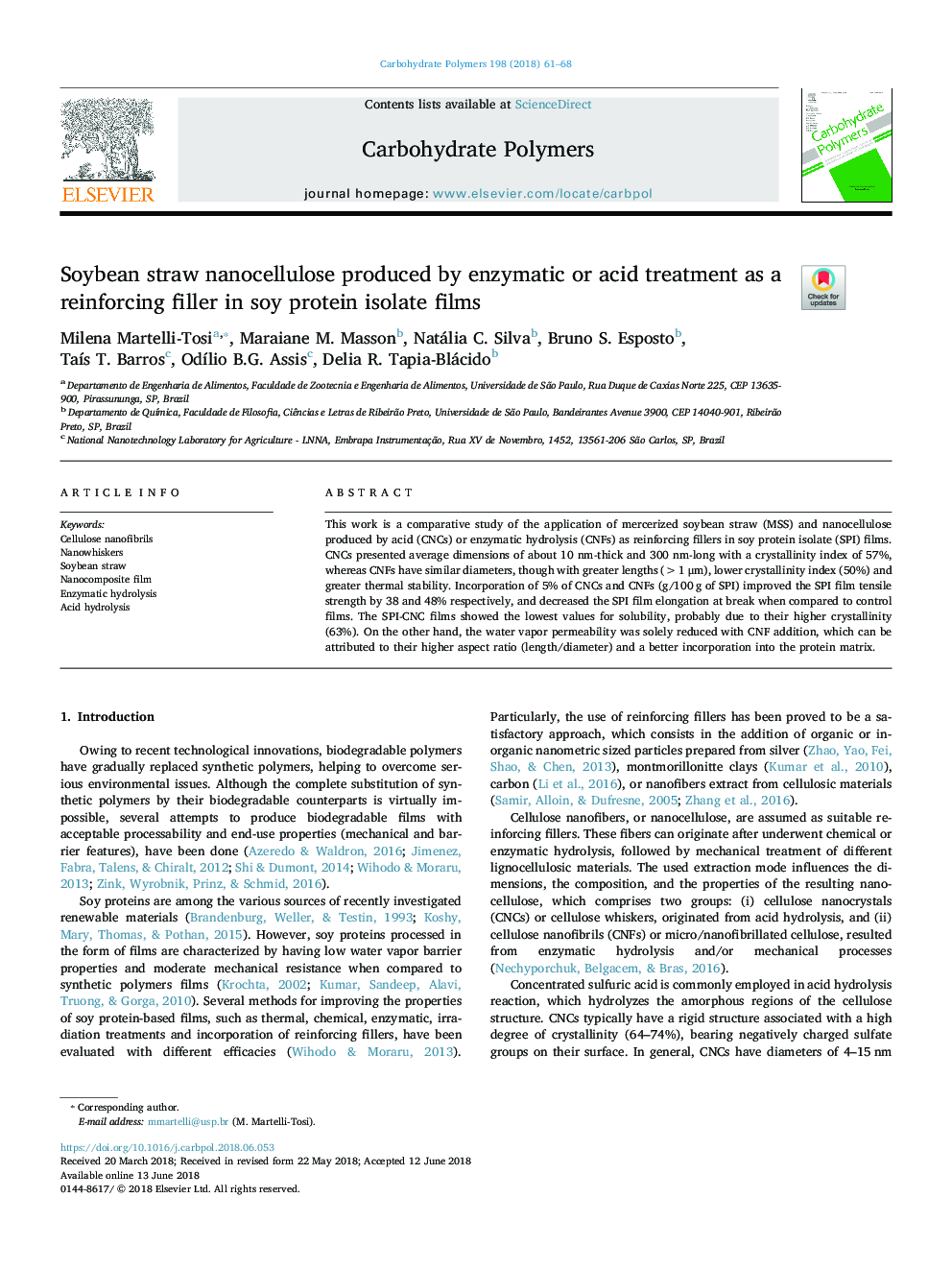| Article ID | Journal | Published Year | Pages | File Type |
|---|---|---|---|---|
| 7781274 | Carbohydrate Polymers | 2018 | 8 Pages |
Abstract
This work is a comparative study of the application of mercerized soybean straw (MSS) and nanocellulose produced by acid (CNCs) or enzymatic hydrolysis (CNFs) as reinforcing fillers in soy protein isolate (SPI) films. CNCs presented average dimensions of about 10 nm-thick and 300 nm-long with a crystallinity index of 57%, whereas CNFs have similar diameters, though with greater lengths (>1â¯Î¼m), lower crystallinity index (50%) and greater thermal stability. Incorporation of 5% of CNCs and CNFs (g/100â¯g of SPI) improved the SPI film tensile strength by 38 and 48% respectively, and decreased the SPI film elongation at break when compared to control films. The SPI-CNC films showed the lowest values for solubility, probably due to their higher crystallinity (63%). On the other hand, the water vapor permeability was solely reduced with CNF addition, which can be attributed to their higher aspect ratio (length/diameter) and a better incorporation into the protein matrix.
Keywords
Related Topics
Physical Sciences and Engineering
Chemistry
Organic Chemistry
Authors
Milena Martelli-Tosi, Maraiane M. Masson, Natália C. Silva, Bruno S. Esposto, TaÃs T. Barros, OdÃlio B.G. Assis, Delia R. Tapia-Blácido,
